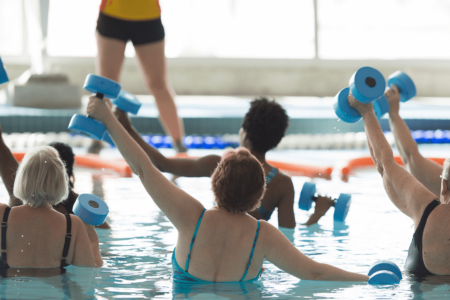Professor Paul Greenhaff, MRC Versus Arthritis Centre for Musculoskeletal Ageing Research and NIHR Nottingham Biomedical Research Centre, University of Nottingham, UK
The Physiological Society and Centre for Ageing Better’s new report ‘A National Post-Pandemic Resilience Programme: Supporting older adults to recover from the pandemic’ will be launched as part of the ‘How can we develop a National Post-Pandemic Resilience Programme?’ webinar on Thursday 16th December from 15.00 – 16:00 GMT.
Despite rising concerns about the new Omicron variant, the run-up to the festive period this year is a timely reminder of just how different things were 12 months ago. While the second national lockdown had finished on the 2 December 2020, tiered restrictions remained in force throughout December with the third lockdown in England beginning on 6 January of this year [1]. While the omicron variant may yet require additional restrictions to be reintroduced, it is more important than ever that we plan for a post-pandemic world and its consequences on physical activity.
As such, legal restrictions on people’s ability to socialise, travel and meet with friends and family were in force for much of 2020 and the first quarter of 2021.
Beyond the heart-breaking stories of families and friends separated from one another and being unable to visit loved ones in hospital, it is clear from the new data presented by The Physiological Society and Centre for Ageing Better that the pandemic has had a significant and negative effective on the physical activity levels of many older people. Despite most restrictions now being lifted, over a quarter of over-50s when surveyed told The Physiological Society and Centre for Ageing Better that they are less physically active than pre-pandemic.
This echoes the recent report from the Public Health England (PHE) / Office for Health Improvement and Disparities (OHID), Wider impacts of COVID-19 on physical activity, deconditioning and falls in older adults which reported that nearly 40% of people aged over-55 are doing less physical activity than usual – the pandemic is being replaced by an inactivity epidemic. Given the role of physical activity in maintaining health, this is a cause for real concern and it is likely that the health of older adults in the general public will have diminished as an indirect consequence of the restrictions necessary to protect people from COVID-19. For some older people, a reduction in physical activity is likely to accelerate frailty development with significant functional consequences, perhaps tilting the balance between just being able to do something, such as rising from a chair, and not. This has significant consequences for independent living and healthcare provision.
The PHE/OHID report also noted that the pandemic is already having an impact on the quality of life of the most vulnerable. 43% of people with a long-term health condition reporting that they are unable to walk as far as before, compared to 13% of people without a long-term health condition. Similarly, 22% of older people from more disadvantaged socioeconomic backgrounds said they feel less steady on their feet compared to 14% from the most advantaged [2]. On a related note, The Society’s report with Centre for Ageing Better found that older people are not homogenous in the public health interventions they would be most likely to act upon. For example, those aged between 50-59 were most likely to favour an activity monitor to empower them to measure their own activity over time [3]. Those aged over 75 however, preferred the involvement of healthcare professionals to develop exercise programmes specifically designed for people of their age [4].
It is clear from both the reports outlined above that COVID-19 has had a negative impact on the physical activity levels of older people, compounding the already lower than recommended levels that were reported pre-pandemic. COVID-19 has demonstrated the need for public health interventions to build a more resilient, healthier nation and we look forward to the webinar to hear from both professionals and older people themselves about the ways to drive evidence-driven, achievable behaviour change.
[1] https://www.instituteforgovernment.org.uk/sites/default/files/timeline-lockdown-web.pdf
[2] Public Health England. Wider impacts of COVID-19 on physical activity, deconditioning and falls in older adults. https://assets.publishing.service.gov.uk/government/uploads/system/uploads/attachment_data/file/1010501/HEMT_Wider_Impacts_Falls.pdf
[3] The Physiological Society and Centre for Ageing Better. A National Post-Pandemic Resilience Programme: Supporting older adults to recover from the pandemic.
[4] The Physiological Society and Centre for Ageing Better. A National Post-Pandemic Resilience Programme: Supporting older adults to recover from the pandemic.

